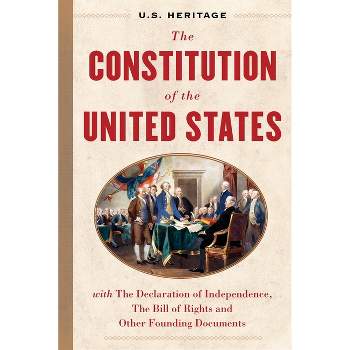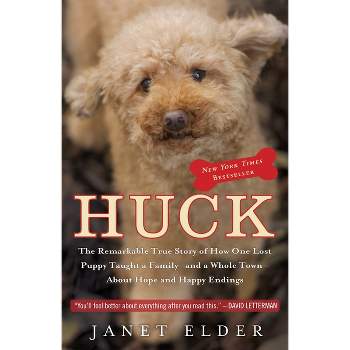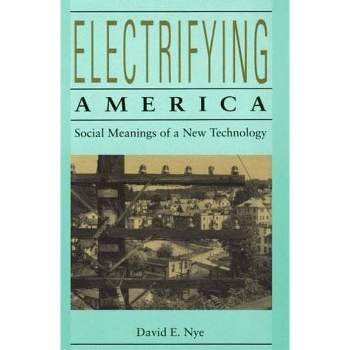Sponsored
Are We There Yet? - (Culture America (Hardcover)) by Susan Sessions Rugh (Paperback)

About this item
Highlights
- When TV celebrity Dinah Shore sang "See the USA in your Chevrolet," 1950s America took her to heart.
- Author(s): Susan Sessions Rugh
- 252 Pages
- History, United States
- Series Name: Culture America (Hardcover)
Description
About the Book
An entertaining cultural history of the American family vacation during the height of its popularity from 1945 to 1973. Reveals the ways in which the ritual of the family road trip, for most middle-class Americans became a way of defining what it meant to be (and become) American.Book Synopsis
When TV celebrity Dinah Shore sang "See the USA in your Chevrolet," 1950s America took her to heart. Every summer, parents piled the kids in the back seat, threw the luggage in the trunk, and took to the open highway. Chronicling this innately American ritual, Susan Rugh presents a cultural history of the American middle-class family vacation from 1945 to 1973, tracing its evolution from the establishment of this summer tradition to its decline. The first in-depth look at post-World War II family travel, Rugh's study recounts how postwar prosperity and mass consumption--abetted by paid vacation leave, car ownership, and the new interstate highway system--forged the ritual of the family road trip and how that ritual became entwined with what it meant to be an American. With each car a safe haven from the Cold War, vacations became a means of strengthening family bonds and educating children in parental values, national heritage, and citizenship. Rugh's history looks closely at specific types of trips, from adventures in the Wild West to camping vacations in national parks to summers at Catskill resorts. It also highlights changing patterns of family life, such as the relationship between work and play, the increase in the number of working women, and the generation gap of the sixties. Distinctively, Rugh also plumbs NAACP archives and travel guides marketed specifically to blacks to examine the racial boundaries of road trips in light of segregated public accommodations that forced many black families to sleep in cars--a humiliation that helped spark the civil rights struggle. In addition, she explains how the experience of family camping predisposed baby boomers toward a strong environmental consciousness. Until the 1970s recession ended three decades of prosperity and the traditional nuclear family began to splinter, these family vacations were securely woven into the fabric of American life. Rugh's book allows readers to relive those wondrous wanderings across the American landscape and to better understand how they helped define an essential aspect of American culture. Notwithstanding the rueful memories of discomforts and squabbles in a crowded car, those were magical times for many of the nation's families.Review Quotes
"Rugh's subject, perhaps best immortalized by the Griswold family in the film National Lampoon--s Vacation, is the family road trip. . . . A valuable addition to the study of 20th-century popular culture and history."--Library Journal
"Rugh treats this period of post-World War II innocence--or Cold War escapism--with a healthy revisionism minus any smudge of sepia sentimentality. . . . Smart and sensitive, well researched and no-nonsense, her ride is well worth taking."--The Atlantic
"A fascinating exploration of excursions from 1945 to the 1970s."--Washington Post
"A captivating and provocative read. . . . Of particular interest is Rugh's argument that the family vacation represented a space for character building and patriotic affirmation--something akin to reading Frederick Jackson Turner's frontier thesis while cruising Route 66. One thing is certain: this book makes a convincing case for the centrality of the road to American culture."--American Historical Review
"Rugh's lively and enlightening book connects tourism to broader themes, including the history of consumption, consumer culture, civil rights, and family history. Perhaps its greatest contribution is its reconstruction of the experiences of African American tourists, which undercut any perceptions of tourism as a carefree adventure."--Western Historical Quarterly
"Rugh does an excellent job of contextualizing family vacations by explaining the factors that made them possible in a way that is both intuitive and intellectually satisfying. . . . Innovative and insightful."--Journal of American History
"Accessible to the general reading public and of value to scholars, Rugh's book can also be readily incorporated into courses in history or American studies at both the undergraduate and graduate level."--Technology and Culture
"Superb! Filled with wonderful images, Rugh's study is exceptionally detailed, extremely well researched and subtly informed by theory rather than driven by it. A well-written and reader-friendly history of a familiar but fascinating subject. I can't wait to own this book!"--Karal Ann Marling, author of As Seen on TV: The Visual Culture of Everyday Life in the 1950s











